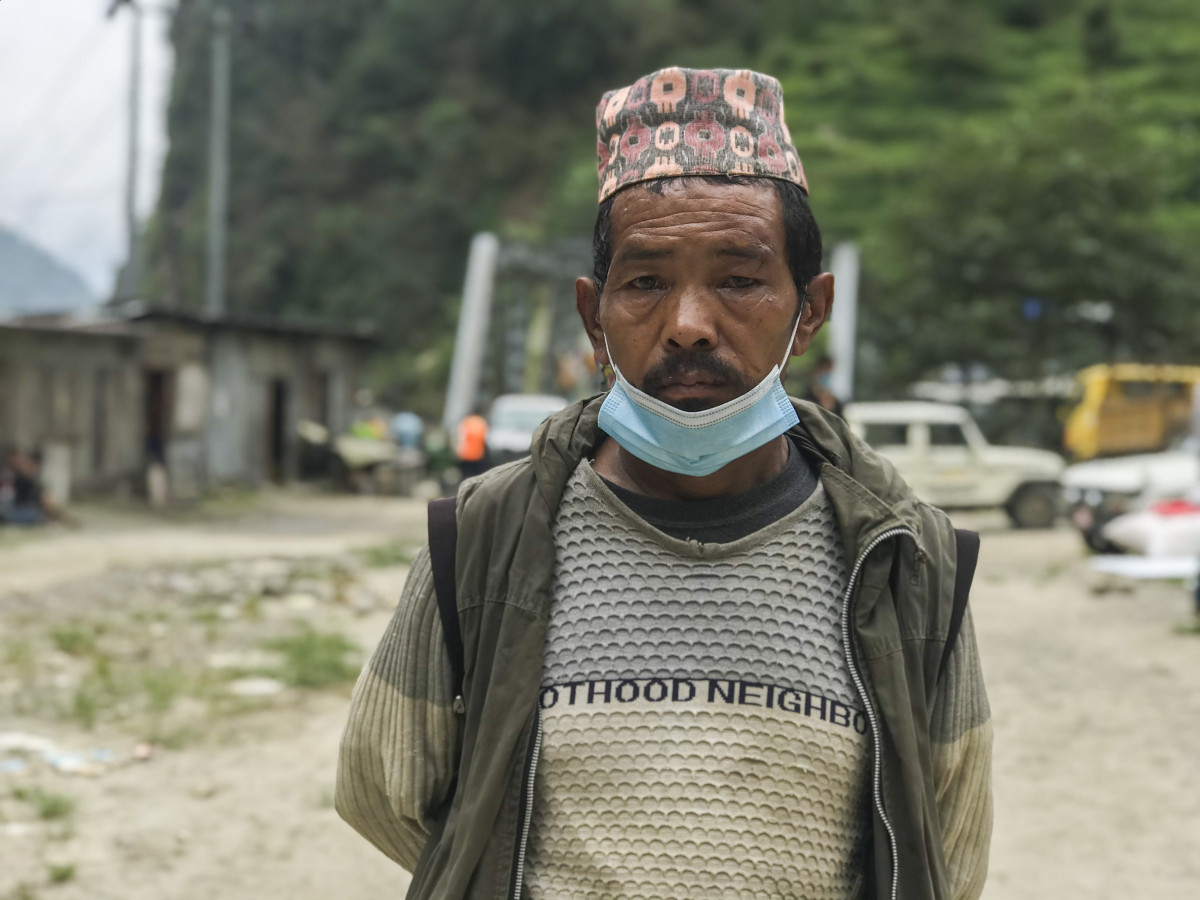Nepal: “Before I could run to my friends, the landslide had swept me off my feet."
Published: Nov 20, 2020 Reading time: 3 minutes Share: Share an articleSindhupalchowk District, one of the many mountainous regions of Nepal, was devastated by the 2015 earthquake and its aftershocks. Residents there have had to struggle through one natural disaster after another, and this year, the monsoon season and subsequent landslides have only added to their woes.

For Nagche Magar, the landslide in Sindhupalchowk became a living nightmare as he found himself trapped under debris for 12 hours. Magar was on his way to the forest when the landslide occurred. “Before I could run to my friends, the landslide had swept me off my feet. I froze for a moment, but I knew I had to survive. I struggled hard but I could not move a single step and I fainted. I thought I would be stuck there forever,” says Magar.
“I survived that night by drinking water”
Helpless villagers watched from a distance as Magar struggled to free himself from the debris; rescuing him would require them to risk their own lives. Once it got dark and they could no longer see him, they began to believe he hadn’t survived. However, although he was injured, Magar had not given up. With survival the only thing on his mind, he managed to dig his way out of the rubble and crawl to his friend’s vacant home, where he stayed overnight. "I was very hungry but no one was there. I survived that night by drinking water and with the expectation that someone would come rescue me. That night was more dreadful than the landslide,” says Magar, his eyes filled with tears.
His friends came searching for him the next day and took him to the nearby health post, from where he was transferred to Kathmandu, the country’s capital, due to the severity of his condition. He was brought to Kathmandu by helicopter with no one to accompany him. The first hospital refused to admit Magar, as it was already dealing with many COVID-19 patients, but through the efforts of a Sherpa Association, he was admitted to another hospital.
After 10 days in the hospital, Magar returned to his village and was shocked to see his destroyed home. Homeless and unemployed, Magar assumed that he would be forced to live without a roof over his head.
Support to displaced families
To help provide emergency housing and basic aid in landslide-affected areas to internally displaced people like Magar, People in Need (PIN) has received humanitarian funding from the European Union. Together with PIN's local partner, Phase Nepal, the "Landslide Emergency Response Project" has supported 100 displaced families with shelter kits, consisting of basic materials such as corrugated galvanised iron (CGI) sheets, plain sheeting, and tarpaulins for the construction of temporary housing.
In addition, Magar and others received non-food items as part of a winterisation package, including a kitchen set, fleece blankets, a sleeping mat, a plastic sack, jacket, gloves, woollen scarf and cap, and a solar-powered flashlight to help keep them warm this winter. “I thought I would never be able to build my home again, however, this project has given me a ray of hope that I can construct a temporary shelter until the government plans for a more permanent solution. I am beyond grateful for the project’s support,” says Magar.
PIN, in partnership with the European Union, has been supporting vulnerable communities affected by landslides in the Sindhupalchowk, Dhading, and Gorkha districts. We are also supporting these areas with water, sanitation, and hygiene interventions to help in the fight against COVID-19. These activities include the installation of gender-segregated community latrines and water stations to provide access to clean and safe facilities and drinking water, together with a variety of complementary hygiene-promotion activities.



